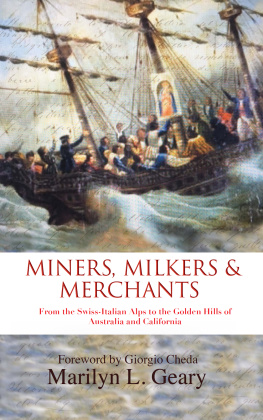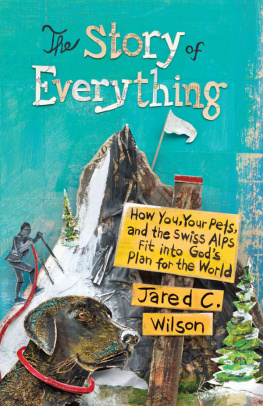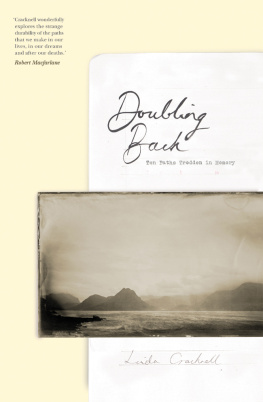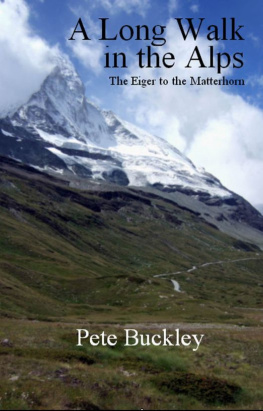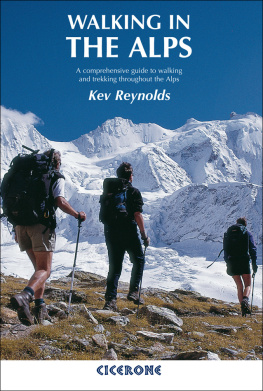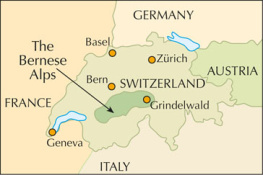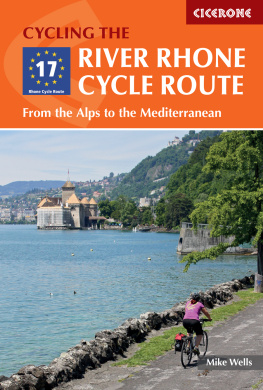PREFACE
For the early chapters of this book I have consulted, amongst other authorities, the books mentioned in the bibliography on pp. 251-254. It would, however, be ungracious if I failed to acknowledge my indebtedness to that most readable of historians, Mr. Gribble, and to his books, The Early Mountaineers (Fisher Unwin) and The Story of Alpine Climbing (Nelson). Mr. Gribble and his publisher, Mr. Unwin, have kindly allowed me to quote passages translated from the works of the pioneers. Two friends, experts in the practice and history of mountaineering, have read the proofs and helped me with numerous suggestions.
CHAPTER I
THE MEDIVAL ATTITUDE
Rousseau is usually credited with the discovery that mountains are not intrinsically hideous. Long before his day, isolated men had loved the mountains, but these men were eccentrics. They founded no school; and Rousseau was certainly the first to popularise mountains and to transform the cult of hill worship into a fashionable creed. None the less, we must guard against the error of supposing that mountain love was confined to the few men who have left behind them literary evidence of their good taste. Mountains have changed very little since man became articulate, and the retina of the human eye has changed even less. The beauty of outline that stirs us to-day was implicit in the hills that shed their burial sheets about the march of Hannibal. It seems reasonable to suppose that a few men in every age have derived a certain pleasure, if not from Alpine travel at least from the distant view of the snows.
The literature of the Ancient World contains little that bears upon our subject. The literature of the Jews is exceptional in this respect. This is the more to their credit, as the mountains of Juda, south of the beautiful Lebanon range, are shapeless and uninteresting. Deuteronomy, the Psalms, Job, and Isaiah contain mountain passages of great beauty. The Old Testament is, however, far richer in mountain praise than the New Testament. Christ retired more than once to the mountains; but the authors of the four Gospels content themselves with recording the bare fact that certain spiritual crises took place on mountain-tops. There is not a single indication in all the gospels that Nazareth is set on a hill overlooking one of the fairest mountain prospects in all Juda, not a single tribute to the beauty of Galilee girdled by the outlying hills of Hermon.
The Greeks lived in a land of mountains far lovelier than Palestines characterless heights. But the Jews showed genuine if spasmodic appreciation for their native ranges, whereas the Greeks, if their literature does them justice, cared little or nothing for their mountains. The note of fear and dread, pleasantly rare in Jewish literature, is never long absent from Greek references to the mountains. Of course, the Greeks gave Olympus to their gods, but as Mr. Norman Young remarks in a very able essay on The Mountains in Greek Poetry, it was necessary that the gods should look down on mankind; and, as they could not be strung up in mid-air, the obvious thing was to put them on a mountain-top. Perhaps we may concede that the Greeks paid a delicate compliment to Parnassus, the Home of the Muses; and certainly they chose for their temples the high ground of their cities. As one wanders through the olives and asphodels, one feels that the Greeks chose for their dwellings and temples those rising grounds which afforded the noblest prospect of the neighbouring hills. Only the cynic would contend that they did this in order to escape the atmosphere of the marshes.
The Romans were disgustingly practical. They regarded the Alps as an inconvenient barrier to conquest and commerce. Virgil shows an occasional trace of a deeper feeling, and Horace paused between draughts of Falernian wine to admire the snows on Soracte, which lent contrast to the comfort of a well-ordered life.
Mr. Freshfield has shown that the Chinese had a more genuine feeling for mountains; and Mr. Weston has explained the ancient cult of high places among the Japanese, perhaps the most consistent mountain worshippers in the world. The Japanese pilgrims, clad in white, make the ascent to the shrines which are built on the summits of their sacred mountains, and then withdraw to a secluded spot for further worship. For centuries, they have paid official tribute to the inspiration of high places.
But what of the Alps? Did the men who lived within sight of the Swiss mountains regard them with indifference and contempt? This was, perhaps, the general attitude, but there is some evidence that a love for mountains was not quite so uncommon in the Middle Ages as is usually supposed.
Before attempting to summarise this evidence, let us try to realise the Alps as they presented themselves to the first explorers. The difficulties of Alpine exploration, as that term is now understood, would have proved quite as formidable as those which now confront the Himalayan explorer. In spite of this, glacier passes were crossed in the earliest times, and even the Romans seemed to have ventured across the Thodule, judging by the coins which have been found on the top of that great glacier highway. In addition to the physical difficulties of Alpine travel, we must recognise the mental handicap of our ancestors. Danger no longer haunts the highways and road-passes of the Alps. Wild beasts and robber bands no longer threaten the visitor to Grindelwald. Of the numerous inconveniences of travel cited by an early visitor to the Alps, we need now only fear the wonderful cunning of Innkeepers. Stilled are the voices that were once supposed to speak in the thunder and the avalanche. The dragons that used to wing their way across the ravines of the central chain have joined the Dodo and the men that eat the flesh of serpents and hiss as serpents do. Danger, a luxury to the modern, formed part of the routine of medival life. Our ancestors had no need to play at peril; and, lest we lightly assume that the modern mountaineer is a braver man than those who shuddered on the St. Bernard, let us remember that our ancestors accepted with grave composure a daily portion of inevitable risks. Modern life is so secure that we are forced to the Alps in search of contrast. When our ancestors needed contrast, they joined a monastery.


